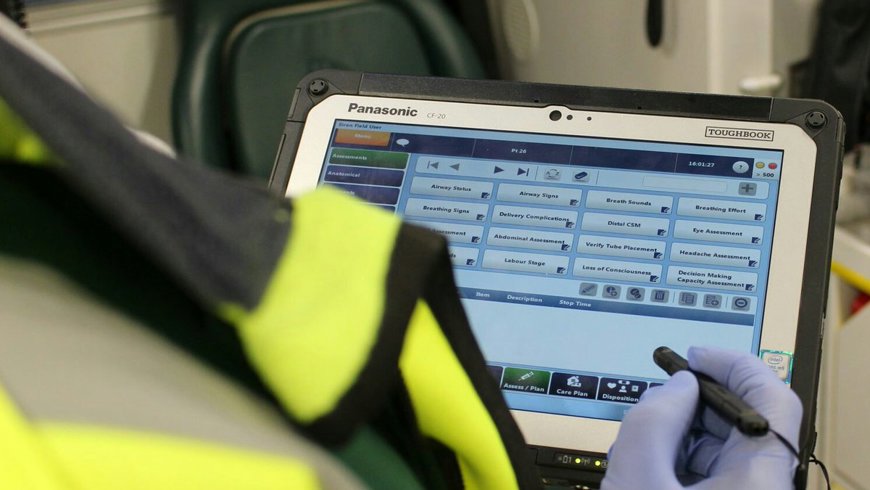
HSE Ambulances Go Digital
Digital Ambulance Project
The Office of the CIO (OoCIO) is working with the National Ambulance Service (NAS) to support the delivery of the NAS Vision Strategy 2020 and to implement its Digital Plan. This plan, to technologically enable Emergency Ambulances, has led to the implementation of three key ICT systems:
- Electronic Patient Care Report (ePCR)
- Mobile Data Terminal
- Communications Hub
The NAS and Office of the CIO have now completed roll-out of this care-enhancing technology to all ambulance stations in the South and Leinster regions, with roll-out to the West region due to be completed later this year.

First Go Live of ePCR in Mallow on 29-Jun-2017
Benefits to the Patient
- The new eHealth systems will allow the National Ambulance Service (NAS) to monitor, measure and report on the clinical practice standards of all practitioners, thereby ensuring that the highest standards of care continue to be provided to patients.
- Care reports will be recorded in a standard format, that can be printed if required – so no more need to decipher handwriting. All information is stored securely, in line with data protection regulations, thereby ensuring that no information is ever lost.
- Data is recorded in real-time and can be transferred from medical equipment such as defibrillators. Using the reliable communications hub, patient details are available in the receiving hospital while the patient is in transit, enabling more coordinated and efficient care.
- The satellite navigation and live patient information updates available on the Mobile Data Terminal (MDT) will assist paramedics to get to the correct location as quickly as possible.
- The new technology will enable the NAS to enhance their clinical audit function and will give the opportunity to analyse injury and illness patterns, all of which will help to improve patient care delivery and to plan for future care.
Technology
Electronic Patient Care Report
The Electronic Patient Care Report (ePCR) replaces the current paper system used to record patient care by paramedics. It allows paramedics to record in a standard, consistent manner the care they provide to patients on a handheld computer tablet. The ePCR system was designed by paramedics so that they can efficiently use the touchscreen to record the patient’s condition, vital signs, medications, the care provided and so on. The full ePCR report is available to the receiving hospital while the patient is in transit.

ePCR deployed in an Emergency Ambulance
Mobile Data Terminal
When a 999 call is made, the emergency call taker will record the patient details, location and primary complaint. This information is now sent electronically to the mobile data terminal (MDT) in the ambulance and is immediately available, along with any updates, to the responding paramedics.
The paramedics can use the inbuilt GPS navigation to get to the right location as quickly as possible. Automatic Vehicle Location in the MDT sends the vehicle’s GPS location to the emergency control centre so that they can inform the caller or the receiving hospital as to how far away the ambulance is.

Mobile Data Terminal
Communications Hub
The communications hub fitted in each Emergency Ambulance and Rapid Response Vehicle allows patient information to be exchanged between the ICT systems in the ambulance and the ICT systems in the National Emergency Operations Centre. The communications hub provides rapid, secure and resilient communications while the ambulance is moving, throughout the country.
Key project details to date
- 77 of the 90 NAS ambulance stations live with digital ambulance technologies
- First station live: Mallow in Jun 2017
- NAS South complete: all 28 stations live, with roll-out completed in Oct 2018
- NAS North Leinster complete: all 26 stations live, with roll-out completed in Jun 2019
- NAS West: all stations will be live by the end of 2019
- Over 150,000 electronic patient care reports created to date
